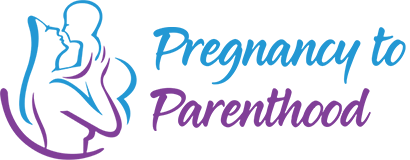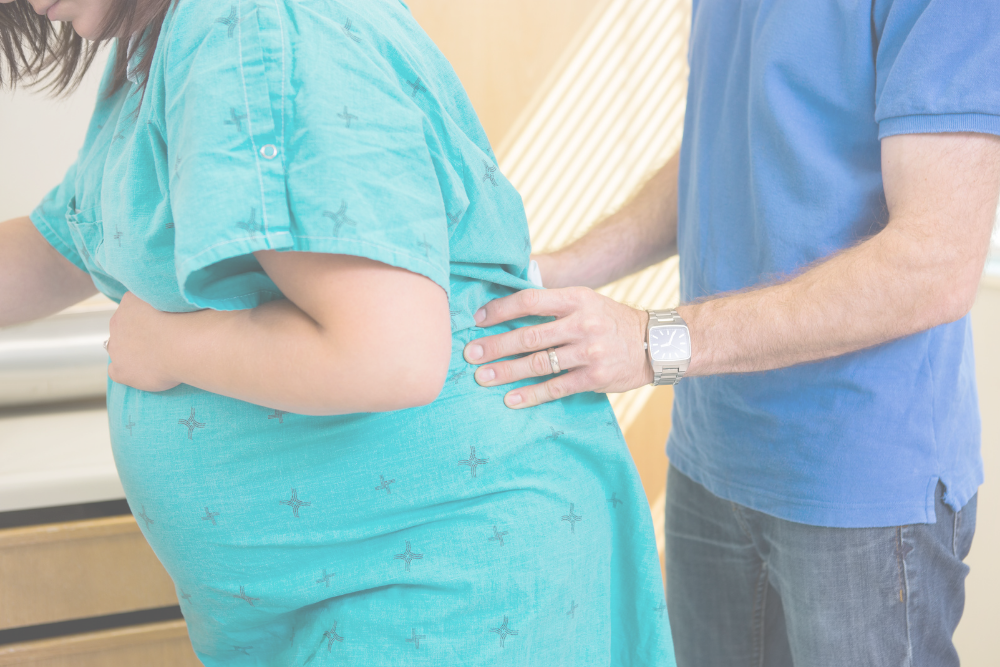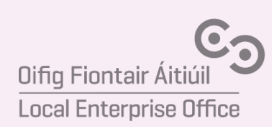A small number of hospitals are making allowances for the anomaly scan but it depends on where you plan to give birth, whether you will benefit from that. What may seem like a positive move has left many wondering if we will see any real change.
Parents are not visitors.
The HSE continues to speak about “visiting” people. In the vast majority of cases we are talking about a parent, not a visitor. A parent who, even though they are not pregnant and will not give birth, has spent time preparing for the birth of their baby and discussing how they can support their partner at every stage along the way.
Partners play a pivotal role. They:
- ask important questions at antenatal appointments
- listen to vast amounts of medical information and together with their partner, they figure out what it all means for them and their baby
- make decisions together with their pregnant partner
- offer vital physical and emotional support in labour
- advocate for their partner and baby during labour and birth
- bond with and care for their new baby in the early days after birth
- support their partner in their early days parenting together.
This is far from an exhaustive list. I am simply trying to point out that birth partners are so much more than simply hand-holders.
Single parents are no less entitled to support and advocacy. They often chose their mother, sister or friend to support them. A trusted person, maybe even a close contact, who can do all of the tasks listed above.
In my opinion it is a human right for a birthing person to have the partner of choice with them at every appointment. This is not an issue we should be debating.
Everyone deserves compassion
The HSE assured us that visiting will be permitted on compassionate grounds, in certain circumstances. This seems like a decent gesture. The thought of women receiving bad news about their pregnancy on their own is very upsetting. There was an recent online campaign, using the hashtag #ButNotMaternity, shining a light on the distressing experiences of so many women and I think we can all agree that it is inhumane and cannot continue. The only question I ask of the HSE is how do they know in advance of a scan who needs compassion? Is it their proposal that once a woman is given bad news her partner can join her for subsequent appointments? That approach is hardly compassionate.
Compassion should not be reserved for those who experience loss or a problem with their pregnancy. Everyone deserves compassion during pregnancy, labour and birth. It is a time when many are anxious and fearful of the unknown. We do not know anyone’s backstory, their history or their current needs.
In straightforward, healthy pregnancies there are beautiful positive moments for a couple seeing their baby in a scan. Surely they should be able to experience that joy together. I cannot see any justification for not offering compassion to every single pregnant person and their partner. If we want to ensure visiting is allowed on compassionate grounds no woman must ever be forced to attend the maternity hospital alone, anywhere in the country.
Inflicting pain, upset and trauma
I meet and support many pregnant people and new parents as an antenatal teacher, baby massage instructor and volunteer breastfeeding counsellor. Many are suffering as a result of the restrictions. In antenatal classes women talk of the fear of labouring alone in hospital before their partner is allowed to join them. In postnatal consultations parents speak of isolation, loneliness, helplessness and even trauma following the birth of their baby. We are knowingly inflicting this on parents. Even when on paper it seems like a “normal”, “non-eventful” birth, women are describing truly negative emotions and experiences. They all deserve compassion. The midwives are doing as much as they can, but they are already overstretched…and to be fair they could never replace a partner anyway.
What happened to the household rule?
Since the beginning of the Covid-19 pandemic the health experts ask us to keep contacts outside of our household to a minimum. There is a good reason for this. NPHET and the HSE consider people living together to be at the same risk level for contracting and spreading the virus. If one person in a household is awaiting testing, the entire household must isolate. We know to remain 2 metres distance from people outside our household and to restrict the number of people our household interacts with. Each household is a bubble. Applying the same principle, it is reasonable to expect that if a couple live together and are both free of symptoms, they should be treated as one household within the maternity services.
Unless the HSE can provide evidence to support applying a different approach, then there is no justification for it. AIMS Ireland has called for transparency and the disclosure of the risk assessment that led to excluding partners. It seems the HSE are unwilling to make the evidence available to the people who use their services. Or more likely, it does not exist. I am not asking for an open-door policy. I know it is essential that we protect hospital staff by limiting limiting footfall. However it is fair to ask the question: are staff at any great risk when a couple are there together? Is the real risk reduced by asking a partner to wait in the car for early labour. If a person is in the room for the remainder, what benefit is there is excluding them until some arbitrary stage of dilation is reached?
Get out clause.
The most disappointing part of this announcement is the get out clause. The Chief Clinical Officer of the HSE said “we must facilitate, in so far as possible, for partners to come in”. That, I am afraid, is the caveat that will allow maternity hospitals to continue to deny pregnant and birthing women the support they deserve and need. Hospitals can continue to say NO but tell us they are allowing partners in whenever possible.
With the entire country now at level 5 restrictions, I am worried that any chance of seeing positive change has disappeared.
The benefits of partner support for labour and birth are well known. If we place any value on birth we must ensure partner support is always available. Maybe therein lies the problem. We do not put any value on birth.
What is the advice internationally?
The World Health Organisation issued information in March when it became clear that restrictions were introduced in maternity settings around the world. I shared their infographic on my Instagram page @pregnancytoparenthood on March 27th. The WHO clearly states that every women has the right to a “positive childbirth experience” and should have a birth partner of choice. The WHO recognises the importance of partner support and made it very clear that Covid 19 should not stand in the way of that.
Some of you may feel the restrictions are fair now that we have moved to level 5. However, just remember that the WHO published this information in March when the world was in crisis management mode. The world was in a chaos, not knowing what we were dealing with. But yet the experts determined that the needs and rights of pregnant and birthing women were more important. That says enough really.
Leave the past where it is.
I have heard many people say things like “our mothers gave birth on their own” so women should just get on with it now. This may be true for many of our mothers, but did anyone ever really ask those women what that was like and how they really felt? Women of previous generations didn’t have a voice. We can all agree that how women in Ireland were treated in the past is not something we should aspire to or use as a justification for inappropriate treatment today. As with many other things from our past, we know better now, so we do better.
How long more can we continue this way?
We have come a long way since March. Even though case numbers have increased greatly in recent weeks, we are operating in a very different environment. Our testing and tracing systems and our hygiene control measures have moved on a lot since then. We know so much more about strategies to minimise the risk. The maternity services must adapt to the current environment where the majority of people wear masks and practice good hand hygiene. We simply cannot continue to exclude partners and make women go it alone.
I have faith in our HSE staff to be able to make this small change safely. The negative impact on families if we continue as we are is just too great. I see the fallout first-hand far too often and it is truly heartbreaking. It is time to value childbirth, to prioritise positive experiences and to guarantee compassion to all. The Hippocratic Oath says “first, do no harm”. Its time to live up to that.





